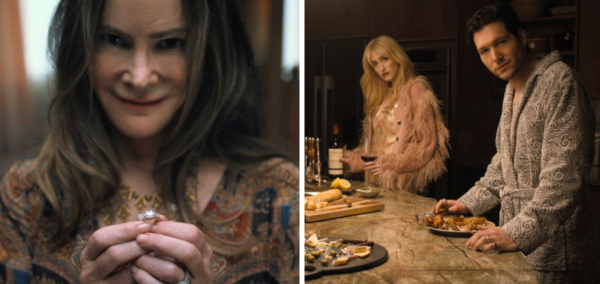
Behind the scenes: The truth about postgrad life at Edinburgh University
Postgrad life is NOT what those dark academia TikToks make it out to be
The most challenging questions an undergrad can be asked isn’t “what do you wanna do with your degree?” nor “are you going to go to your 9am?”
But: “Are you actually considering doing a Master’s?”
Though it certainly relates to the future application of your degree, this question really stems from a belief that a master’s degree is an incredibly expensive act of procrastination. Like waiting those three minutes until it’s half past the hour before starting work, a Master’s seems to be an unnecessary wait before jumping into the real “adult world”. At least, that is the insanely encouraging popular belief that was going around while I was writing my personal statement.
If that’s precisely why you’re applying for a master’s at Edi, I’m here to reveal the truth behind those aesthetic dark academia TikToks.

Those who think that doing an extra year translates into putting off leaving the easy uni life are so utterly wrong. A postgrad’s life is so demanding and complex that I can only compare it to my teenage years. Suppose an undergrad is that idyllic childhood (or source of trauma for some). In that case, a postgrad is adolescence, the drastic fashion metamorphosis (which might get featured on WYWW), the arguments with adults and feeling “misunderstood”. If you’ve just started the application process and fear getting into an emo phase, do not worry: You will not become Jenny from Gossip Girl. Nobody ever will; she is unique. But one thing about Jenny really is spot on: The constant arguing with the world.
Most Read
I still don’t know whether it’s just part of the course (I don’t study law, don’t be rude) or the Edinburgh Uni style, but I find myself disagreeing with everyone. My fellow postgrads probably disagree with this too, clearly proving my point. The art of disagreeing probably gets you high marks in your essays; I’m sure this applies to whatever they do in essay-less degrees, too. Even those avid believers in the cult of science, numbers and speakers of languages with no cool flag still have to constantly prove each other wrong to develop science.

We all do the same thing but bring it to the next level postgrad. You literally become a master at arguing. That’s why postgrads read so much: We’re not looking for evidence to strengthen our points; rather, we seek more people to disagree with. In your undergrad tutorials, you might have performed or witnessed a legally blonde underdog contribution using something like a feminist critique, but disagreeing at a postgrad level is quite different.
Disagreement often translates into conflict, and conflict leads to isolation. Jenny Humphrey was not fighting against her cool dad for attending fashion school. Jenny Humphrey was a social outcast, persona non grata of the Manhattan Elite. This is the sad reality of studying postgrad: Having a strange aftertaste of isolation in a world that tastes so familiar but is radically different – nearly as unsettling as a Marchmont girlie without her skinny scarf. To my parents, I compared doing a postgrad at Edi to driving a Ferrari after getting my driving license from Tesco’s trolleys. Against my previous observation, many postgrads agreed with me on this.

Reading this might lead to the belief that it takes some level of insanity to make this choice, but you only need a significant amount of trust. It’s not passion for your course that makes you want to write another dissertation. Many are passionate about sports but happy to observe from a distance with a pint and give up the long hours of training and injuries that come with it. Giving up going to Hive is a great example.
You can absolutely love your undergrad degree and never want it to end, but that does not make you a good candidate for postgrad. What defines us is trust in our capabilities and knowing our arguments are valid despite everyone disagreeing with us. This sort of faith (more like arrogance) makes you persevere and continue going to lectures, after which your brain feels like a thousand lemons being squeezed simultaneously (or the morning after Bongos on a Wednesday morning).
The struggle to adapt is not a temporary initial phase: My first term ends in two weeks, and I still feel like everyone speaks a language I don’t understand. To someone like me who is fluent in four and a half (the half being drunk Scots) is very frustrating. A challenge I am happy to accept – but a challenge that is so unbelievably tough. Like in those classic US teenage movies where the main character struggles to find a place to sit or open their lockers (surely you don’t need Benedict Cumberbatch and Keira Knightley to crack it), navigating the postgrad world is the most humbling experience ever.
Unlike a teenager between infancy and adulthood whose delinquency and poor taste are justifiable, the only rebellion you can afford is with a haircut, maybe. You’re expected to act like you know precisely the purpose of everything. Purpose is probably the only thing you need in your personal statement. Although having a motivation (or rather “motive” for the crime that is postgrad and not wearing your best outfit in George Square for WYWW) suggests a strong drive, you will undeniably struggle with procrastination. That anxiety and addiction to the adrenaline to do things last minute is what really distinguishes us postgrads. If you’re a postgrad reading this and disagreeing, look at you reading my article and not doing you work! You’re also proving my point that all we do is disagree.
Finally, the most effective way to convey a postgrad’s hectic and expensive lifestyle is to disclose the state of my fridge. This act certainly is very shameful, but the aim of this article is to expose and uncover the truth behind a postgrad’s life in Edi.

The presence of Tesco’s paneer, M&S mozzarella and Sainsbury’s eggs demonstrate the nomadism of postgrads, the lack of meal planning and energy to cook. My Italian Grandmother would be so devastated at the sight of my fridge; she’d wonder what on earth I could make with those ingredients. I’m embarrassed too, Nonna, but I had to be honest with my readers.
So why do you do a postgrad at Edi if the only reassurance you have is when you’re steering a Tesco’s trolley? Well, the answer is: I don’t even have the time to do that either. Truly, while some people manage to skip puberty, the adults I admire underwent this awkward phase to become the role models I look up to every day. Butterflies were once a disgusting caterpillar. Edi is the New York City of universities: Despite some mice and a housing crisis, there really is a place for everyone. And, unlike Manhattan, even Jenny would fit in.



















